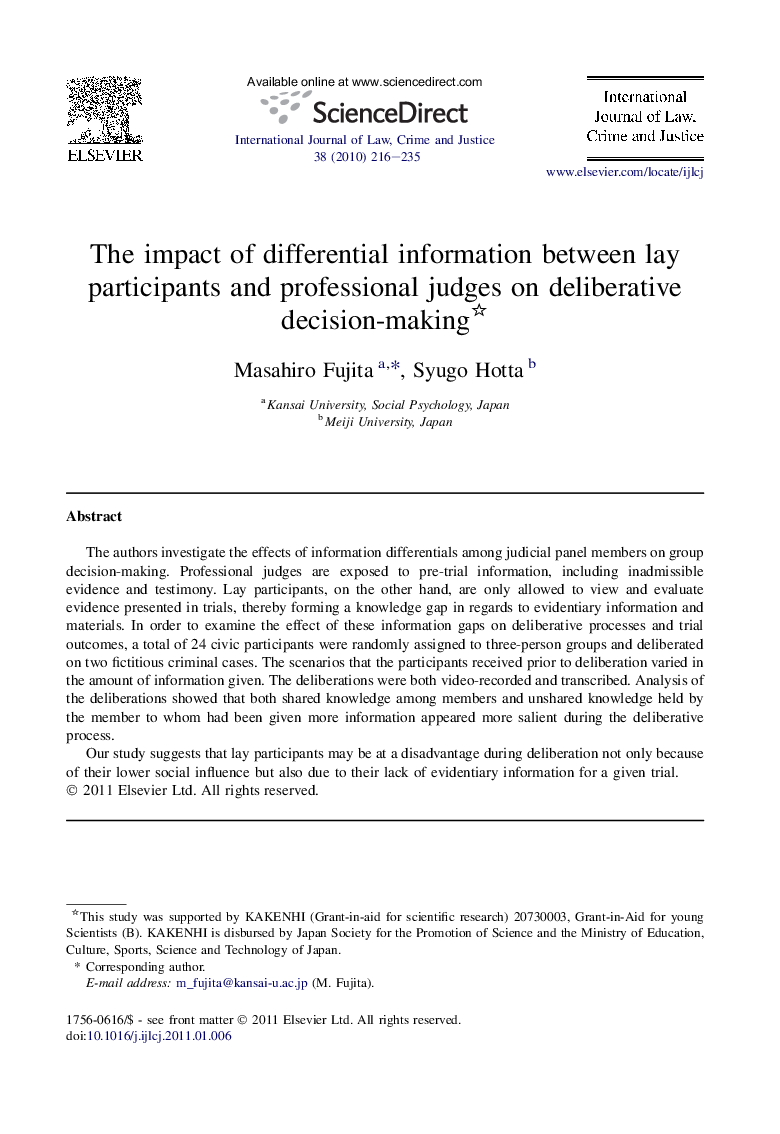| Article ID | Journal | Published Year | Pages | File Type |
|---|---|---|---|---|
| 1097981 | International Journal of Law, Crime and Justice | 2010 | 20 Pages |
The authors investigate the effects of information differentials among judicial panel members on group decision-making. Professional judges are exposed to pre-trial information, including inadmissible evidence and testimony. Lay participants, on the other hand, are only allowed to view and evaluate evidence presented in trials, thereby forming a knowledge gap in regards to evidentiary information and materials. In order to examine the effect of these information gaps on deliberative processes and trial outcomes, a total of 24 civic participants were randomly assigned to three-person groups and deliberated on two fictitious criminal cases. The scenarios that the participants received prior to deliberation varied in the amount of information given. The deliberations were both video-recorded and transcribed. Analysis of the deliberations showed that both shared knowledge among members and unshared knowledge held by the member to whom had been given more information appeared more salient during the deliberative process.Our study suggests that lay participants may be at a disadvantage during deliberation not only because of their lower social influence but also due to their lack of evidentiary information for a given trial.
